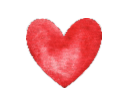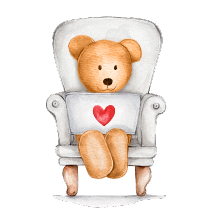
Mein Baby hat einen angeborenen Herzfehler (AHF)

Du willst nicht glauben, was dein Arzt gerade gesagt hat. Mit besorgter Miene wiederholt der Arzt die Worte:
„Ihr Kind hat einen angeborenen Herzfehler.“
Dann hörst nicht mehr zu. Einen Moment später bricht deine Welt zusammen. So beschreiben viele Eltern den Augenblick, als sie vom angeborenen Herzfehler ihres Kindes erfuhren. Nach anfänglichen Gefühlen von Panik, Wut und Angst willst du aber nicht die Augen vor der Realität verschließen. Jetzt willst du alles über angeborene Herzfehler wissen und wie man damit umgeht.
Sich über den Herzfehler zu informieren, kann dir die Angst nehmen.
Auch dass du mit dem Problem nicht allein bist, hilft enorm!

One in every 100 babies in the world is born with a heart defect.
As sad as it is: Every year, about 700 babies in Austria are born with heart anomalies.
Each year, that is one tiny struggling heart too many. Two thirds of children with heart defects have no chance of a happy childhood without the necessary surgery. This leaves many parents feeling helpless, overwhelmed and on the brink of despair. Heart parents need all kinds of support and many helping hands.


Types of heart defects

Heart anomalies can sometimes be linked to risk factors such as the mother having a viral infection, drug use during pregnancy or the mother suffering from serious illnesses during pregnancy.
However, for most babies, there is no obvious or known cause of their heart condition.
Anatomically, CHD can take the following forms:
- A hole in the ventricular septum, the wall of tissue separating the right and left ventricle (heart chamber). This causes a shunt, which is a biological or artificial passage between the systemic and pulmonary circulation (left and right ventricle), pumping blood through the body and lungs respectively.
- The valves and the arteries are narrower than normal (stenosis)
- The main arteries, a ventricle or the heart itself are in the wrong position (malposition) or have swapped positions (transposition)
- The ventricles or arteries are underdeveloped, they are too small or missing




Symptoms depend on the type and severity of the heart defect. Some of the most common symptoms are:
- Tiredness and fatigue (for example, the baby sweats a lot or gets tired when feeding, poor weight gain)
- A blue tinge to the skin and mucous membranes (cyanosis)
- Irregular heartbeat, difficulty breathing, enlarged liver, delayed growth



Some heart defects cause no or only mild problems.
Some symptoms may only present later in life as the child grows up.

Herzkinder sind noch viel mehr...
Viele unserer Ideen möchten verwirklicht werden! Dazu brauchen wir aber Deine Unterstützung, denn Veranstaltungen müssen geplant und organisiert werden und für viele Dinge müssen auch wir bezahlen.




